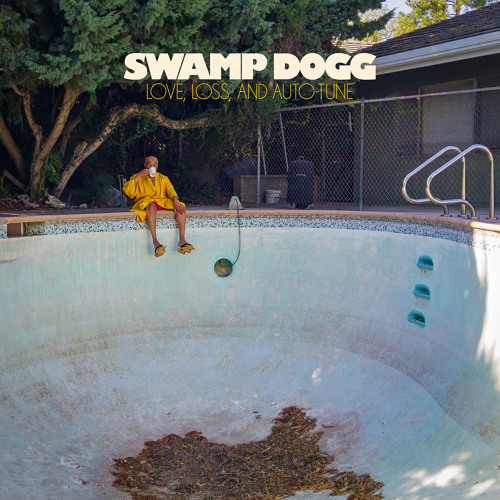ALBUMS // Swamp Dogg – Love, Loss, and Auto-Tune

Post by Misha
I was at work when I heard this album. I opened an email with the stream on my lunch break intending to listen to a couple of songs and move on, maybe tag it for a longer listen at a later date. Instead I started to play “Lonely” and sat breathless for the better part of an hour.
“Lonely” is an aching for love and partnership, but it’s as much an indictment of capitalism and modernity. The story is a familiar one: working to exhaustion for mere survival; coming home after 16 or 18 hours and struggling to fill the empty hopelessness that kind of exhaustion carves out of you. The desperation to fill it is overwhelming – with television, with sex, companionship – anything. Because it all has to be for something, right? There has to be something to come home to, someone to come home for. Right?
The first time I can remember being enchanted by auto-tune was in 2011 with Jason Derulo’s Whatcha Say. I say this without shame. And then some time later I heard the Imogen Heap song from which that haunting chorus is derived. Then 808s & Heartbreak came out. And I began to understand how a technology which had for decades primarily existed in the background to make the voice of pop monotonously, commodifiably perfect, had suddenly come into its own as a bonafide statement.
Emotion filtered through autotune is amplified by its struggle to be heard, to be rough, imperfect. The Sisyphean irony should not be ignored; it takes a tool that was designed to make art more homogenous and uses it instead to make art.
The musical legacies Swamp Dogg (aka Jerrry Williams) draws on – soul, gospel, hip hop, blues, American folk – are all profoundly steeped in Black struggle and revolution, but it’s easy to forget that history when their musical signatures have been so aggressively coopted from “history” – which is explosive and contextual, to “tradition ” – which is safe and sterile. Williams could have made a stunning album full of those sounds which have by now become familiar and comfortable. But we don’t live in familiar, comfortable times, and the business of being a musician, especially a Black musician pushing five decades in the industry, is anything but comfortable.
Love, Loss, and Auto Tune is disruptive. It never allows you to settle in, put it on in the background and go about your day. The highs are big, brash, and joyful. The lows are devastating. It’s something approximating classic soul in conversation with a computer. Passion pleading with a ruthlessly young technology. It’s messy and sexy. It’s frank. It discusses lingerie and incarceration, Dom Pérignon and unemployment. Love, joy, fear, loss –
and Auto Tune.
Buy Love, Loss and Auto-Tune here, out now via Joyful Noise Recordings.




